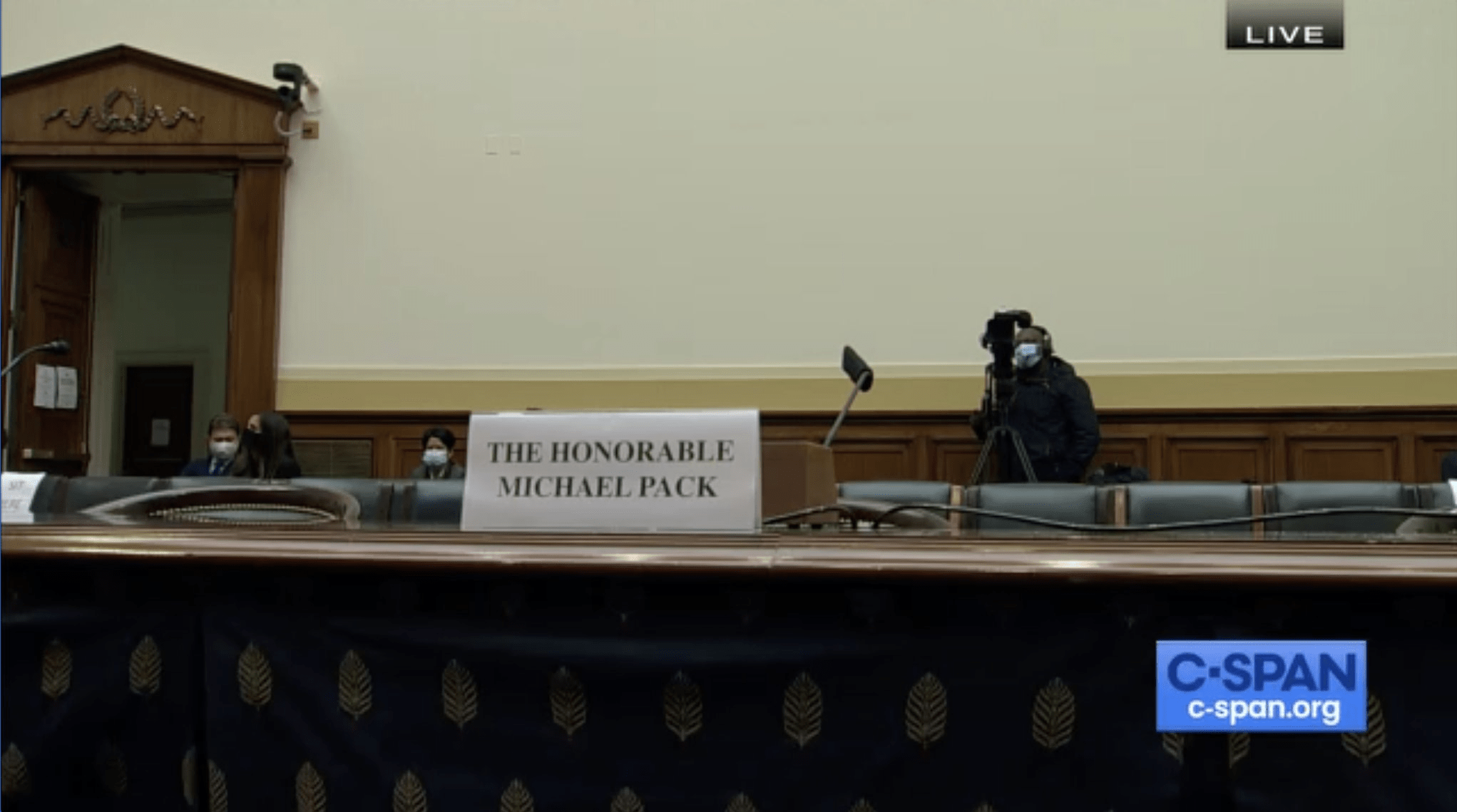Lawmakers voice concerns about politicization of Voice of America, other international broadcasters

During a hearing last Thursday, members of the House Committee on Foreign Affairs expressed deep concern about leadership at the U.S. Agency for Global Media and the increased politicization of the agency.
USAGM CEO Michael Pack defied a congressional subpoena to appear before the committee, but five witnesses testified about changes happening at USAGM, Voice of America and the other congressionally funded international broadcasters.
During the three-hour hearing, titled “Oversight of the United States Agency for Global Media and U.S. International Broadcasting Efforts,” witnesses expressed concern that Pack and leadership at USAGM are undermining the ability of agency broadcasters to provide independent, credible and essential news services for audiences around the world.
Witnesses included Grant Turner, former USAGM Chief Financial Officer; Amanda Bennett, former director of Voice of America; Jamie Fly, former president of Radio Free Europe/Radio Liberty; Karen Kornbluh, chair of the board of directors of the Open Technology Fund; and Ryan Crocker, board member of the Open Technology Fund.
Both Chairman Eliot Engel (D-NY) and Ranking Member Michael McCaul (R-Texas) echoed their concerns with Pack’s leadership. Engel questioned the legitimacy of Turner’s firing, saying that his removal was retaliatory.
“I think you did your job and told your superiors things they didn’t want to hear,”he said. “I think it’s outrageous.”
McCaul highlighted the importance of VOA abroad, especially in countries suffering under state-controlled media and censorship: “[Voice of America] is one of the most valuable things we have in the State Department to talk to people” in authoritarian countries like China, Iran and Russia.
The hearing also covered the importance of the editorial firewall that protects the independence of the broadcasters, and potential safety concerns of journalists who may have to return home due to their visas not being renewed by Pack and USAGM.
With respect to the firewall, Bennett noted, “the purpose of this firewall is to allow the journalist to operate independently without reference to any type of pressure from, in the private sector, the people who provide the money. The journalists are free to make decisions on what they cover … without reference to pressure from the outside.”
The Reporters Committee addressed the danger posed by the agency’s refusal to renew foreign journalists’ visas in a letter to the House Foreign Affairs Committee sent shortly before the hearing. In the letter, the Reporters Committee urged Congress to protect these foreign journalists, and noted that the blanket refusal to renew their visas violates the congressionally mandated editorial firewall.
Congress should “protect the physical safety of journalists at the U.S. international broadcasters and … preserve the editorial independence of these sources of essential and trusted news for millions around the world,” the Reporters Committee’s letter stated. By not renewing the visas of VOA journalists, CEO Michael Pack “impairs the ability of the broadcasters to gather and report the news consistent with the ‘highest professional standards of broadcast journalism.’”
Recent statements by Pack have put VOA journalists at heightened risk for retaliation for their work on the public’s behalf. Pack has stated publicly, without evidence, that journalists may be national security threats or spies, joked about deporting his own employees and has incorrectly stated that his job is to police the editorial approach of the networks.
“Not only do these statements chill reporting by journalists facing visa nonrenewal,” the Reporters Committee stated in its letter to the House Foreign Affairs Committee, “but interference by the CEO in editorial decision-making, even in the face of perceived ‘bias,’ is itself a firewall violation.”
Read the full Reporters Committee letter submitted to the House Committee on Foreign Affairs.
The Reporters Committee regularly files friend-of-the-court briefs and its attorneys represent journalists and news organizations pro bono in court cases that involve First Amendment freedoms, the newsgathering rights of journalists and access to public information. Stay up-to-date on our work by signing up for our monthly newsletter and following us on Twitter or Instagram.